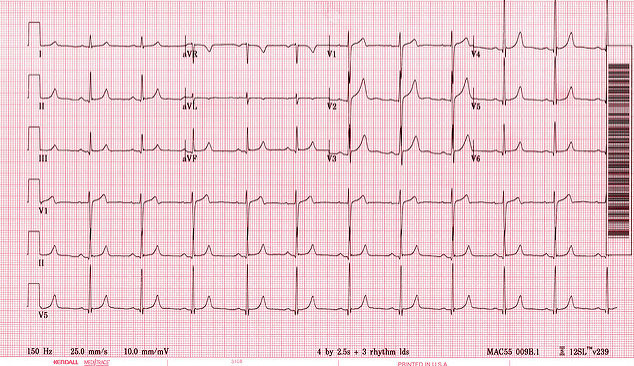Every half a minute someone in the U.S. has a heart attack, as the American Heart Association claims. Some survive it and go back to normal life. Still, the knowing that heart attacks are among the most common causes of deaths cannot be lightly taken.

Medically known as myocardial infarction or acute myocardial infarction (AMI), this usually happens when the normal blood flow is somehow disturbed and the muscles of the heart don’t get the oxygen they need so they get injured. Preventing a heart attacks includes knowledge about some of the symptoms, or warning signs.
Warning Signs
- Chest Pain Out of Nowhere: discomfort or sudden pain in the chest may occur in the central or the left part of the area, it lasts shortly but it can come back. In some cases pressure, fullness or even squeezing can be felt too. It is often misinterpreted as heartburn or indigestion.
- Breath Shortness: difficulties breathing because of a tight feeling in the chest area can happen before or simultaneously with the previous sign, no matter if the body is relaxing or if it is physically active.
- Upper Body Discomfort: it may happen in the form of pain in the arms, the shoulders the neck, the back as well as the jaw or even the stomach.
- Dizziness: experiencing dizziness and light-headedness may happen too.
- Cold Sweat: it can come out of nowhere, with no reason.
Some other signs may include fatigue without a reason, nausea or vomiting, anxiety or fear from death and a general feeling of discomfort.
Understandably the warning signs can be different for every person, and it often happens that some people do not even realize that these are symptoms of a heart attack.
To women, chest pain may not be so apparent because they are prone to other symptoms including tiredness, discomfort in the abdomen (nausea, indigestion), pressure in the upper body etc.
Factors of Risk
Some people are under a higher risk than others, regarding this condition. Frequent risk factors may include:
- Abnormal blood levels of certain lipids
- Aging
- Chronic disease of the kidneys
- Diabetes
- High consumption of alcohol
- High blood pressure
- Lack of exercise
- Overweight and obesity
- Smoking
- Use of cocaine and amphetamines
Preventive Tips
Just some small changes in the diet and the overall lifestyle can be of big help when it comes to prevention or reduction of heart attack risk.
- Healthy diet that is well-balanced
- Exercise daily.
- Get quality sleep of 6 to 7 hours every night
- If you have diabetes, make sure you do everything that is necessary to keep the condition under control
- Quit smoking. Even second-hand smoke can be dangerous to the heart
- Limiting alcohol consumption
- Keep your blood cholesterol and blood pressure at appropriate levels
- If you are overweight, make sure you try to control your weight
- Stress reduction
What to do in case of having symptoms
If you are feeling you have some of the warning signs for a period longer than 10 minutes, you have to do something. It is helpful if you remember that blood flow restores slowly and some areas of the muscles of the heart may start to get destroyed which can result in severe problems, among which is heart failure. Some emergent measures for help are:
- Immediately seeking medical care, even if you are not really sure it is a heart attack, because in case it is – this is actually what gives the best chance for the best results.
- Open any doors and windows to get some fresh, clean air that can be of help with breathing.
- Make sure you avoid driving in that condition. Either ask someone for a ride to a hospital, or wait for an ambulance.
- Try to stay calm as much as possible by taking slow and deep breaths
- You can take an aspirin and chew it because this can help in reducing the damage to the heart, just be sure you are not allergic to it.
Every single moment matters if you or someone near you is in the situation of a heart attack. Fast action after experiencing warning signs can help in reducing or limiting the damage to the heart.












